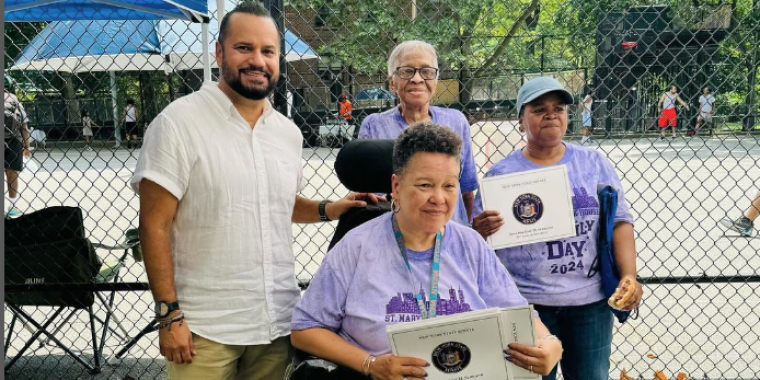
Serrano Publishes Op-ed In Bronx News
A Deficit of a Different Kind at Public Housing
by State Senator José M. Serrano
(Reprinted with permission from the Publisher)
Public housing has seen better days. The New York City Housing Authority (NYCHA) is more than $200 million in debt. This is not just a number, but a real ideological shift – and one that has devastating consequences on the ground.
I see this first-hand when I meet with tenant associations around the district. It's clear that NYCHA is no longer able to provide the quality service it once offered to working class families in our city. For this reason, I fight hard in Albany to reaffirm the state's commitment to the public housing it helped to build.
But the decline in funding, I believe, has been accompanied by an equally disturbing decline in the respect afforded to residents. Let me be clear: the majority of NYCHA managers and officials are decent, hard-working people. But NYCHA must still find a way to create a more welcoming environment for its residents.
For example, I was notified by constituents that the Management Office at the Millbrook Houses does not have a Spanish speaker on staff. This is despite the fact that a significant percentage of the Millbrook population is Latino, and not everyone communicates well in English.
I reached out to the Bronx Management Department, which assured me that a temporary Spanish-speaking "floater" would be assigned to work out of the Millbrook Management Office. Not only did this never come to pass, but I was later informed by that no such floaters exist in the system.
There is apparently a NYCHA language hotline that provides third-party translation services when staffers meet with residents. But why not have the bilingual employees stationed in the very management offices where their skills are needed most? This strikes me as a more effective use of funds.
In some ways, the damage is done before the constituent even walks through the door of the management office. I had my staff members call Millbrook as if they were Spanish-speaking residents. "I don't speak Spanish and nobody else does either," snapped the woman on the other end of the line.
Frankly, that is unacceptable. Management needs to be more understanding and more polite.
They can start small. In my office, for example, not all of my employees speak Spanish. But they did sit down and practice important phrases for answering the phone and completing other tasks. It helps productivity. More importantly, it lets our constituents know that – no matter the language – they will always be respected.
